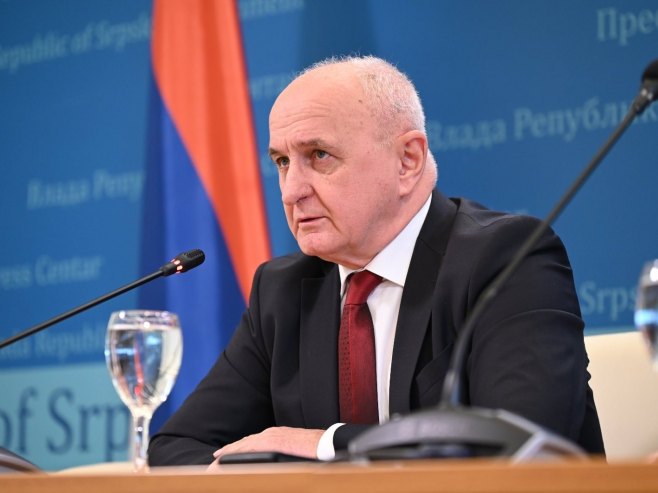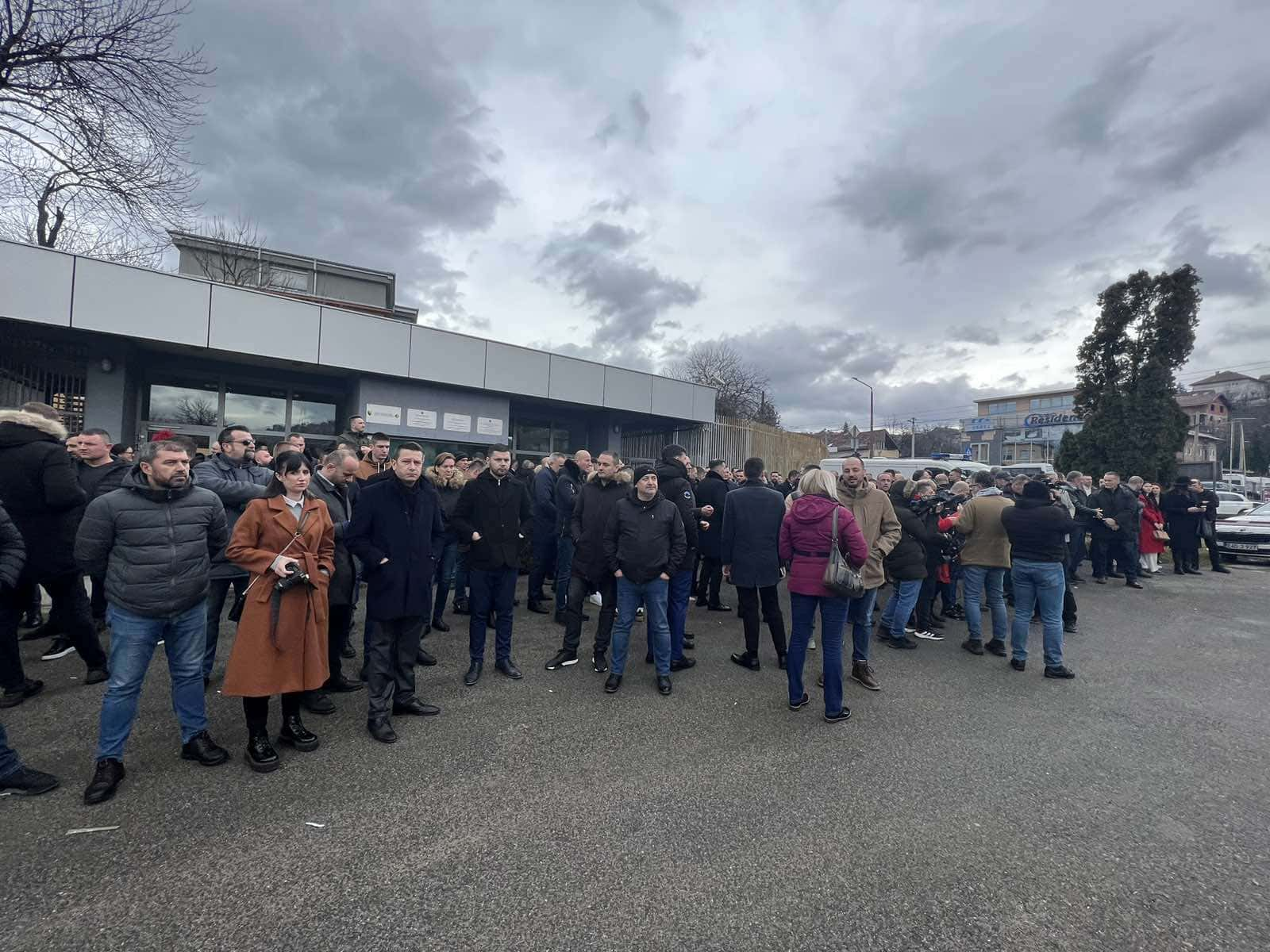The president of the Independent International Commission for the Investigation of the Suffering of All Peoples in the Srebrenica Region from 1992 to 1995, Gideon Greif, stated that the results of any resolution insisting on unilateral political-media narratives never lead to reconciliation and long-term stability, and that such initiatives often say a lot about the bearers of those projects.
Commenting on the actions of the Bosniak part of the BiH mission to the UN, which is independently, without a decision from the Bosnia and Herzegovina Presidency, working on a new resolution on Srebrenica to be presented at the UN General Assembly session in April, Greif emphasized the importance of understanding that propaganda always tries in every way to prevent the academic verification of its media-political narratives.
“In this light, one should understand the move of Republika Srpska regarding the establishment of the Independent International Commission, in order to open all archives and guarantee full and complete independence in its work, but also the denial of facts from the Report of the Independent International Commission for the Investigation of the Suffering of All Peoples in the Srebrenica Region from 1992 to 1995, as well as denying the report itself, the Commission, and its members by anti-civilization structures and ideologies,” Greif emphasized for Srna.
Greif mentioned that neither he, as the chairman of the Commission, nor its members comment on “political issues,” but, for the sake of truth and a better understanding of the existence and results of the Commission’s research, he feels the need to present a few facts.
According to him, the Commission is often called “Greif’s commission” in public, including in Serb discourse, which is completely incorrect and aims to and results in diminishing the effect of the Report.
Greif reminded that the Commission consists of 10 top experts with personal and professional integrity, all of whom are world-renowned experts, and all members – including himself, who has conducted research in his field – were independent in their research and writing of their parts of the Report.
“I am proud of the fact that I had the opportunity to work with such a group of exceptional people and world-class experts. Just look at the biographies of the Commission members on our website – exceptional people and excellent professional experts,” Greif stated.
Greif highlighted that all members of the Commission agreed, adopted, and signed the Report, which means that the report has the collective authorship of all members of the Commission, not any individual, even if it is the chairman. He emphasized that no member of the Commission can change or add a single letter to the Report unless it is adopted by the entire Commission, in case new findings or documents emerge.
Greif stated that the Government of Republika Srpska, when the Commission was formed, gave guarantees that the Commission would have complete independence in its research and the process of preparing the Report.
“In that sense, representatives of the Government guaranteed that they would accept all facts and consequences we encounter during our research and which we mention in our Report,” Greif reminded.
In this regard, Greif emphasized that this was confirmed in reality when he, on behalf of the Commission, presented the Report at a session of the Government of Republika Srpska, at which the Government took note of the Commission’s report.
“I must admit that Republika Srpska’s commitment was very brave because, as it turned out, the Report contains numerous facts about individual and mass crimes committed by the Serbian side against Muslims in the Srebrenica area. Therefore, it was a significant political risk, but the authorities of Republika Srpska were ready for it,” Greif emphasized.
Greif reminded that the President of Republika Srpska, Milorad Dodik, stated at a press conference after the mentioned government session that the Report contains many facts that are not all pleasant for Srpska, but that facing the past is necessary for the reconciliation process and for a better future in the region.
He noted that Dodik then called on the judiciary to prosecute those responsible for crimes on all sides.
“I consider this one of the most significant achievements and effects of the Commission’s work and the publication of our report. As we, the members of the Commission, could see later, after the report was published, no one from Republika Srpska or Serbia denied the crime committed in July 1995,” Greif stated.
Speaking about the reaction from the Federation of BiH to the Report, Greif highlighted that, unfortunately, on the other side, no one was officially or unofficially willing to acknowledge the mass and systematic crimes committed by the so-called Army of BiH against the Serb population.
According to him, what shocked and additionally concerned the Commission members regarding the reconciliation process in BiH was witnessing a completely uncivilized denial of facts from the Report concerning crimes by the so-called Army of BiH against Serbs in circles of the Muslim political and professional public in BiH and their diaspora.
“Systematic and uncivilized denial of crimes against Serbs turned into labeling the Report as Serb propaganda, and into completely uncivilized and primitive personal attacks on Commission members, which in some cases escalated into a kind of lynching,” Greif emphasized.
Greif believes it is crucial to emphasize that among the fundamental civilized values are the freedom of academic and professional research of historical events and freedom of thought, no matter how controversial and painful it may be.
He reminded that he has spent his entire life in such research, including the extremely sensitive and painful issue of the phenomenon of Jewish camp inmates who were forced to assist the Nazis in Auschwitz (Sonderkommando).
“Anti-civilization forces will always prevent such research, and in various ways, they will prevent academic researchers and professionals from expressing their opinion based on scientifically established and authentic facts,” believes Greif, who is also a leading Israeli historian and expert on Holocaust issues.
Greif stated that the Commission members were pleasantly surprised when they realized that through their research, they came to the same conclusions as the president of the Appeals Chamber of the International Mechanism for Criminal Courts in The Hague, Judge Prisca Matimba Nyambe, and that it was established that the most respected and esteemed Holocaust experts, historians, and researchers worldwide reached the same or similar conclusions.
Further discussing the Commission’s work, Greif said that, while respecting every victim and condemning all crimes, it means a lot to acknowledge that they share the same professional vision of this issue with a group of excellent and world-renowned experts, and that the ten Commission members conducted their work conscientiously, with human sensitivity, striving for objective truth and without bias.
Greif emphasized that the Commission is proud of the report it has published and considers it an authentically scientific document, balanced and based on facts.
“We invite all concerned parties to treat the Commission members and its conclusions with the same standards they adhered to in their work, without compromise, narrow interests, and external pressures of any kind,” said Greif, a long-time head of the desk for Germany and Poland at Yad Vashem, and among others, the author of the book “We Wept Without Tears,” which inspired the Oscar-winning film “Son of Saul.”
The Independent International Commission for the Investigation of the Suffering of All Peoples in the Srebrenica Region from 1992 to 1995, led by Greif, concluded that neither an individual crime of genocide nor genocide in general occurred in Srebrenica.
Greif previously clarified the meaning of the term “genocide,” stating that it refers to “the intention of one group to completely destroy another people,” and the Commission of 10 world experts concluded that the Serbs never had such a plan neither in Srebrenica nor anywhere else.
The Bosniak part of the BiH mission to the UN, independently, without a decision from the BiH Presidency, is working on a new resolution on Srebrenica to be presented at the UN General Assembly session in April, recently reported by “Večernje Novosti,” citing unofficial information.
Based on this document, for whose adoption they are lobbying, a gathering and an appropriate exhibition in New York are planned for July 11, the day marking the crime in Srebrenica.
Source: SRNA








